Scientists convene as Marmara Sea faces renewed mucilage threat in Istanbul
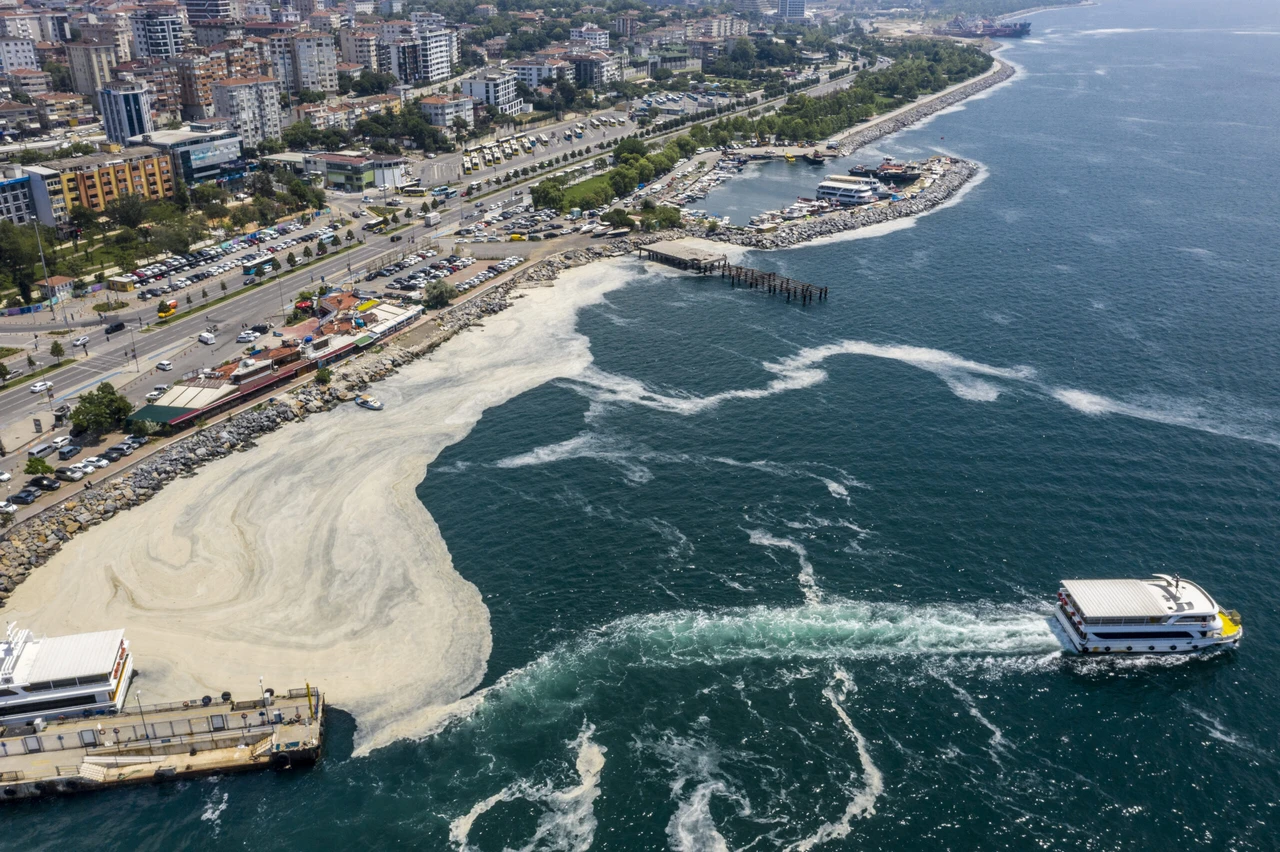 A drone photo shows mucilage (sea snot) continuing to cover the surface of Marmara sea at the Maltepe shore in Istanbul, Türkiye, June 26, 2021. (AA Photo)
A drone photo shows mucilage (sea snot) continuing to cover the surface of Marmara sea at the Maltepe shore in Istanbul, Türkiye, June 26, 2021. (AA Photo)
The mucilage problem, also known as marine mucus, has reappeared in the Marmara Sea, sparking concerns among scientists and government officials.
In response, Türkiye’s Ministry of Environment, Urbanization and Climate Change has called for a meeting of the Mucilage Science and Technical Committee on Dec. 25 in Ankara to address the situation. The committee will discuss the latest findings and propose new strategies to combat this environmental crisis.
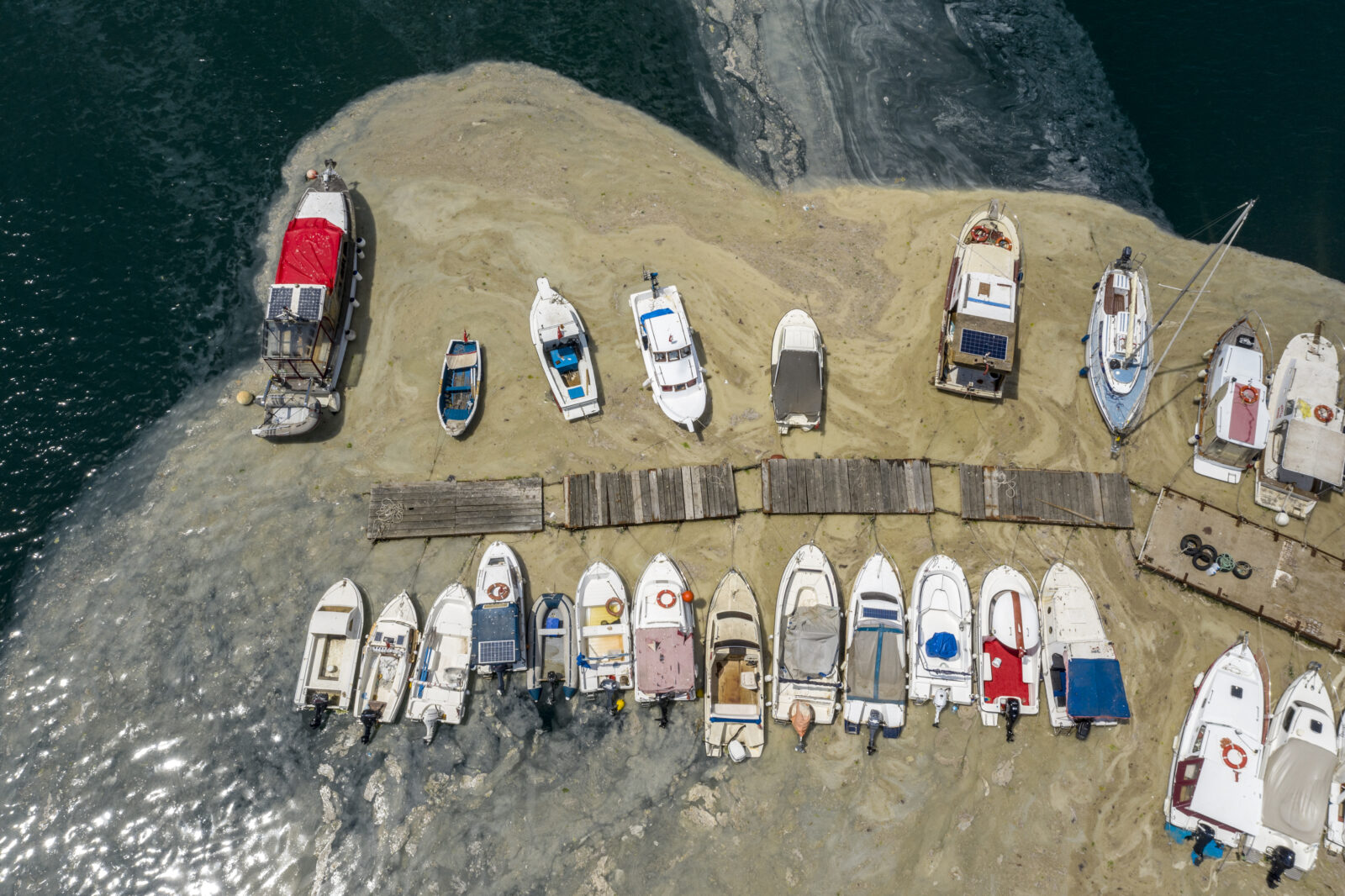
Türkiye organizes urgent meeting to evaluate mucilage resurgence in Marmara Sea
The Ministry of Environment, Urbanization and Climate Change announced that the meeting will focus on evaluating the current condition of the Marmara Sea and planning necessary actions.
Deputy Minister Fatma Varank will lead the meeting, including academics and officials from organizations such as the Scientific and Technological Research Council of Türkiye (TUBITAK), the Marmara Municipalities Union, and the Marmara Research Center.
Representatives from 13 universities, including Istanbul Technical University, Bogazici University, and Kocaeli University, will attend the meeting.
The committee will assess reports indicating the presence of mucilage at depths of 10 to 22 meters in areas such as Marmara Ereglisi and Eskihisar in Izmit Bay.
Professor Melek Isinibilir Okyar of Istanbul University’s Faculty of Aquatic Sciences stated: “The Marmara Sea is facing severe pressures. If we do not act responsibly, the sea will collapse rapidly.”
Professor Halim Aytekin Ergul of Kocaeli University highlighted the importance of region-wide measures. “We observed mucilage clusters at various depths caused by pollution and untreated sewage. Long-term solutions must include improved population management and sewage treatment systems,” he said.
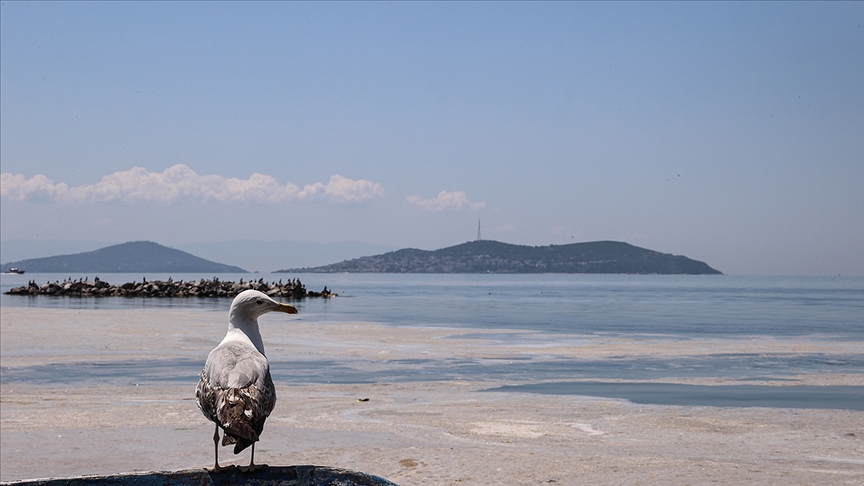
Findings reveal alarming developments in Marmara Sea’s ecosystem
Recent studies have revealed thick layers of mucilage at unexpected depths in the Marmara Sea. Researchers from Istanbul University reported finding a mucilage layer up to 10 meters (32.8 feet) thick at 22 meters near Marmara Ereglisi.
The findings surprised the team, who expected such deposits only at greater depths. A separate study detected mucilage clusters at depths of 10 meters to 15 meters in Izmit Bay, highlighting the widespread nature of the problem.
Professor Isinibilir Okyar, who led the Marmara Ereglisi study, explained the severity of the issue. “Mucilage and associated pathogens pose a direct threat to marine life and human health. The collapse of the Marmara ecosystem will impact fish stocks and the livelihoods of surrounding populations,” she said.
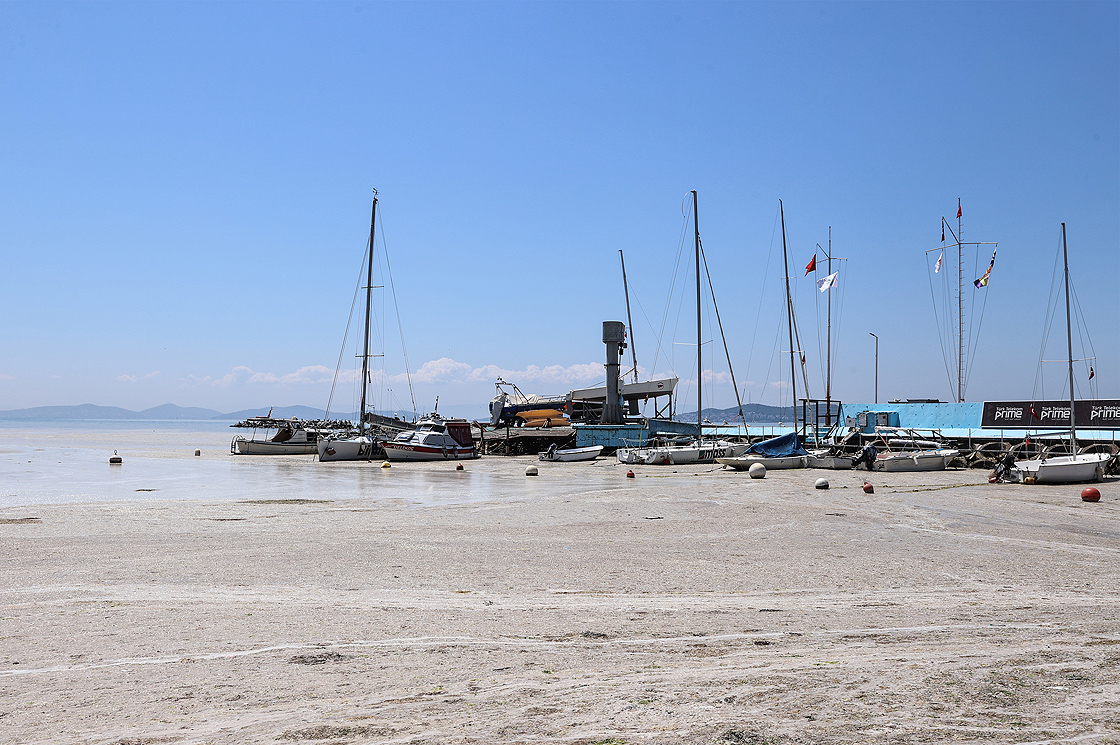
Türkiye enforces stricter penalties on polluting facilities to combat the crisis
Since the mucilage outbreak in 2021, the Ministry of Environment, Urbanization, and Climate Change has implemented strict measures.
- Over 38,500 inspections were conducted in provinces bordering the Marmara Sea, including Istanbul, Kocaeli, Tekirdag, and Bursa.
- Authorities fined 1,998 facilities and 749 vessels, a total of 1.23 billion lira, for violating environmental regulations. Additionally, 268 facilities were shut down.
- In 2024 alone, officials carried out 11,314 inspections, issued 318 million lira in fines to 727 facilities, and halted operations at 88 sites.
These efforts aim to curb pollution and prevent further damage to the Marmara Sea.
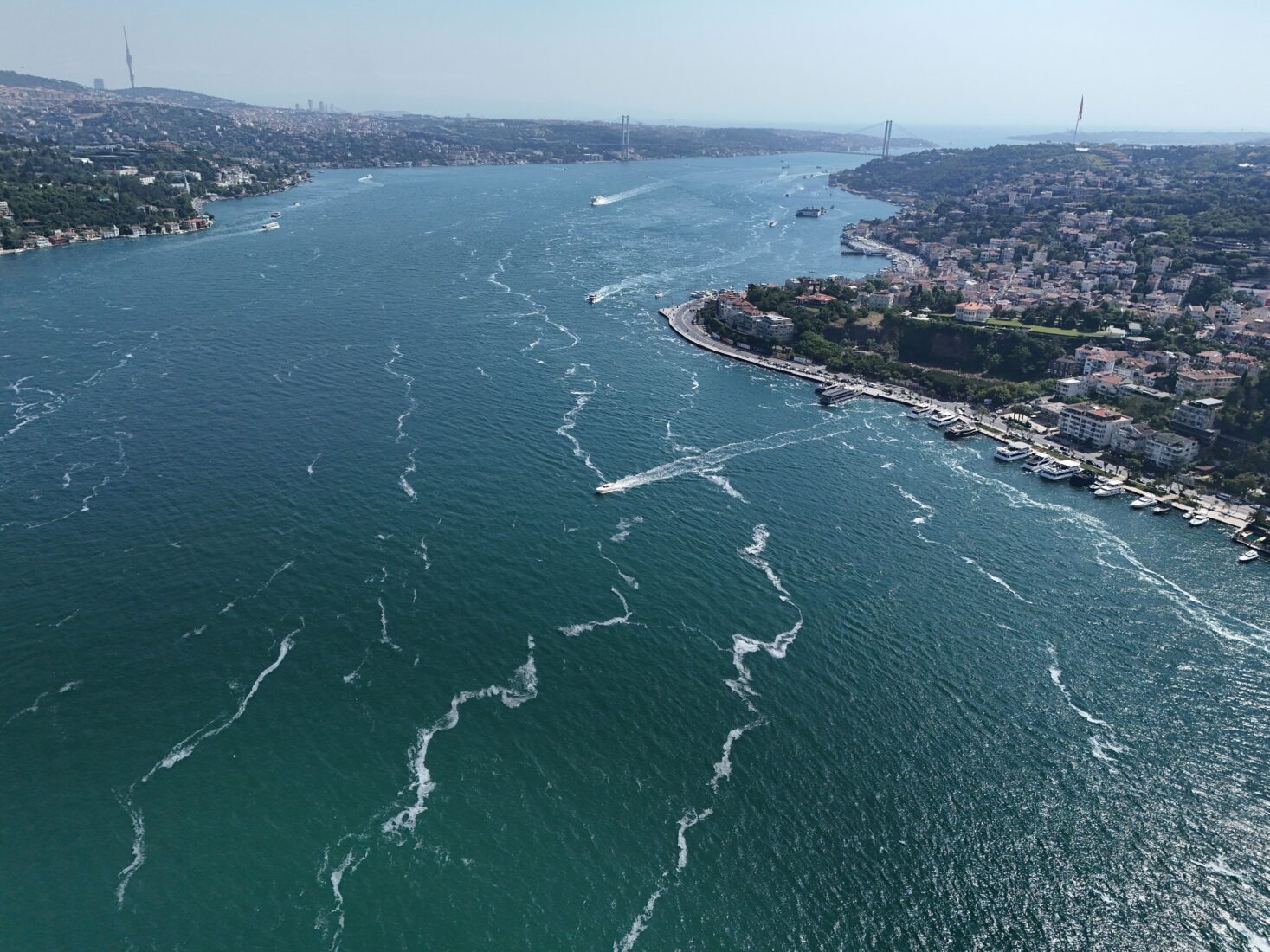
Long-term solutions necessary to protect the Marmara Sea from further deterioration
Despite Türkiye’s efforts, experts warn that population growth and untreated sewage continue to exacerbate the problem. The Marmara region, home to over 27 million people, remains under significant environmental pressure.
Advanced biological wastewater treatment systems, restrictions on deep-sea discharge, and coastal preservation initiatives are among the measures experts recommend.
Professor Ergul emphasized the importance of coordinated action across the region. “Population density and untreated wastewater are the largest contributors to this crisis. Comprehensive and sustainable measures are needed to ensure the Marmara Sea’s recovery,” he stated.
The upcoming meeting in Ankara will play a crucial role in determining how Türkiye addresses the mucilage problem and protects the Marmara Sea for future generations.



